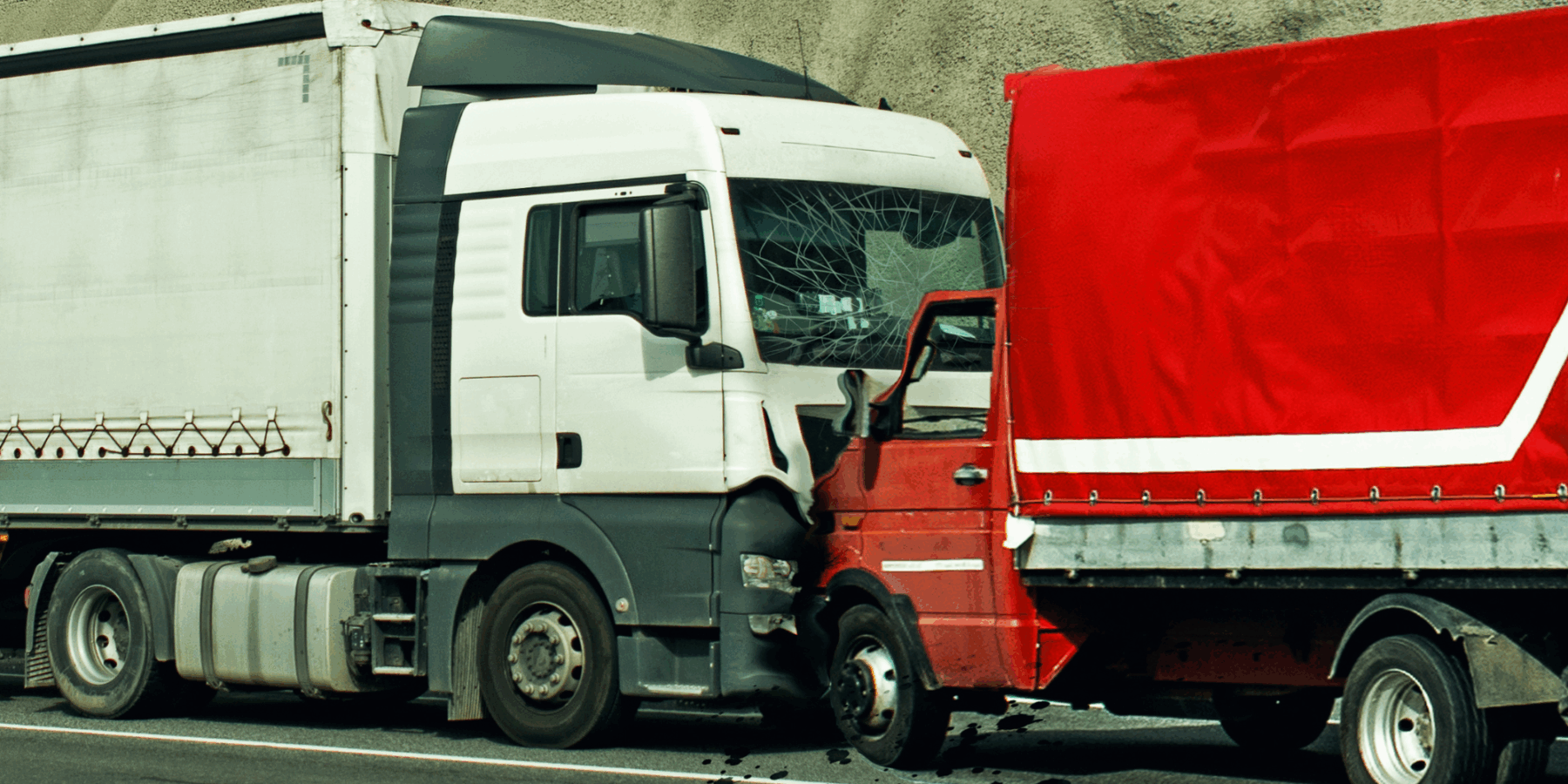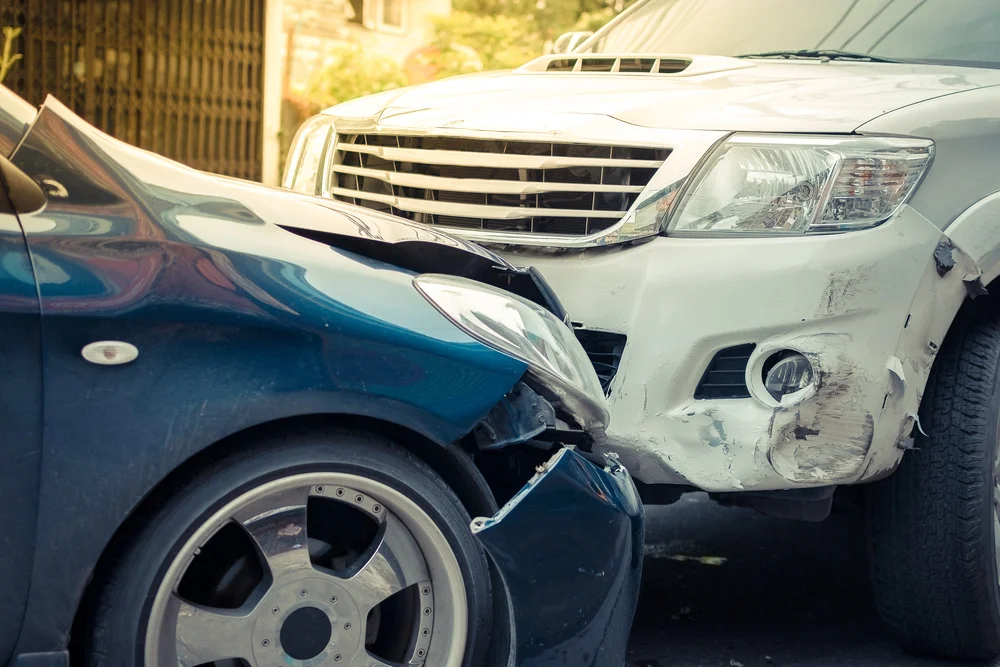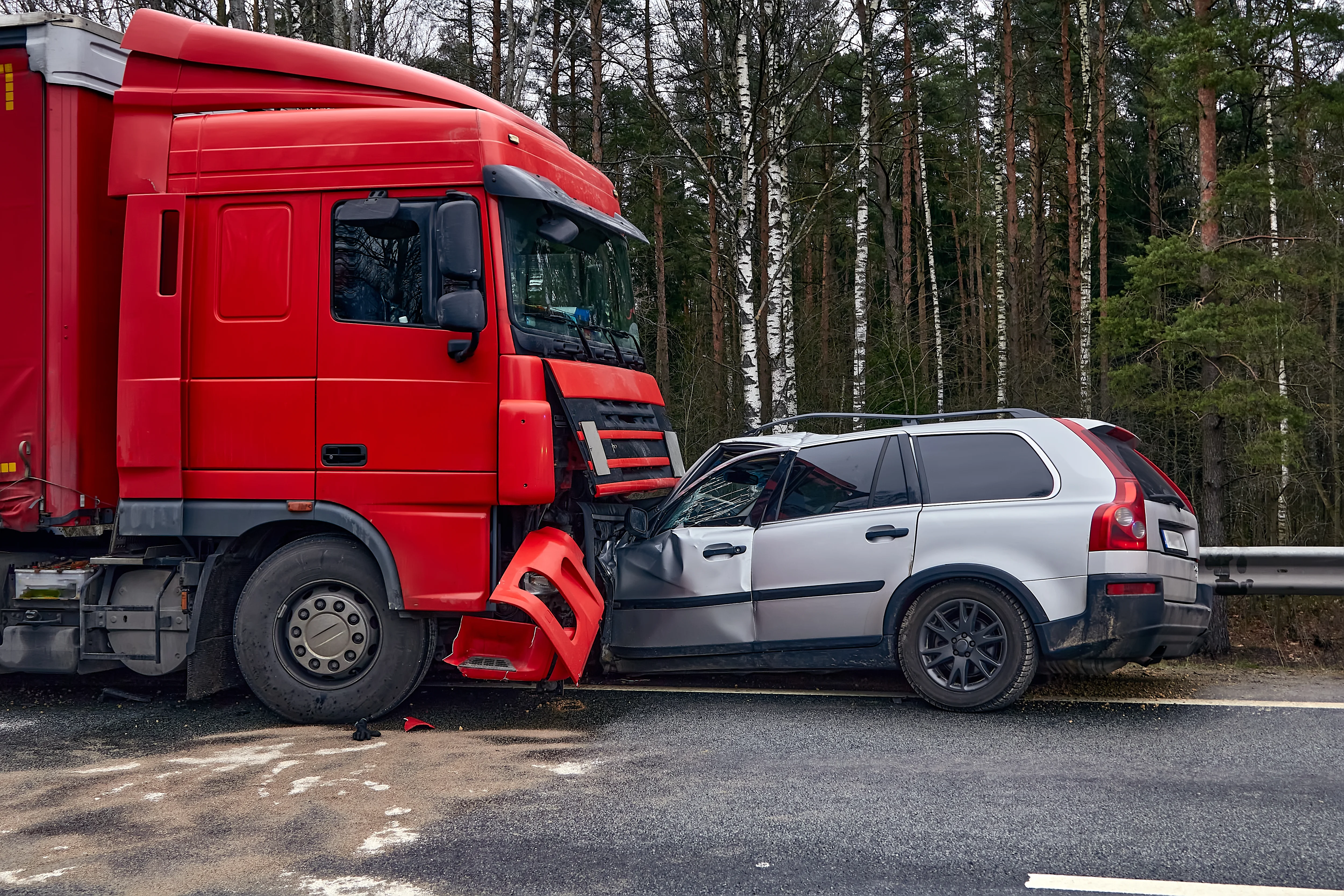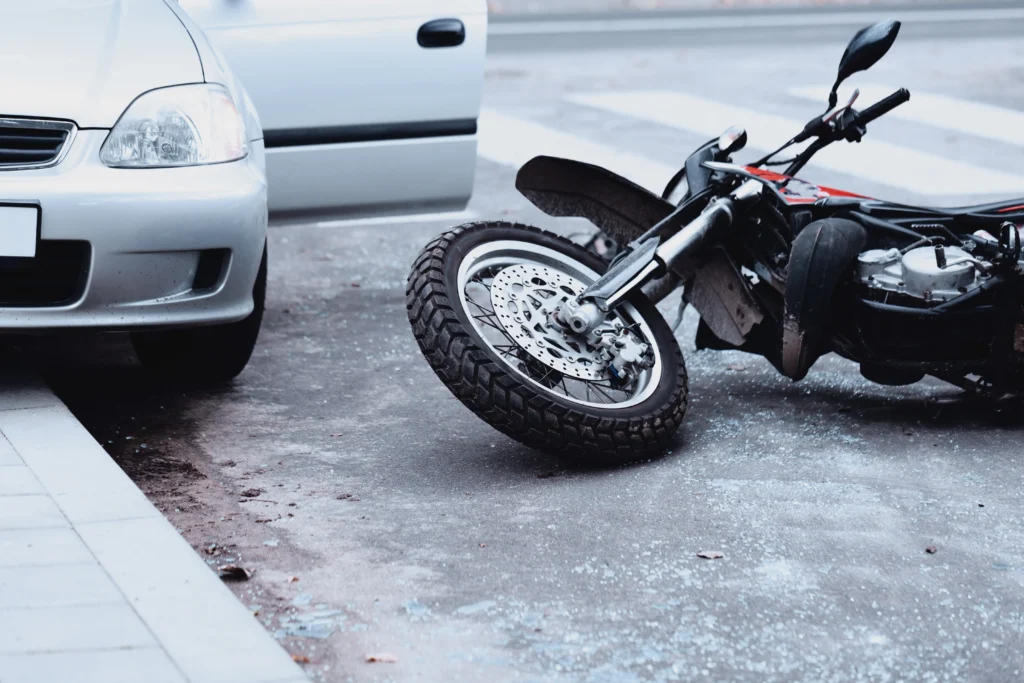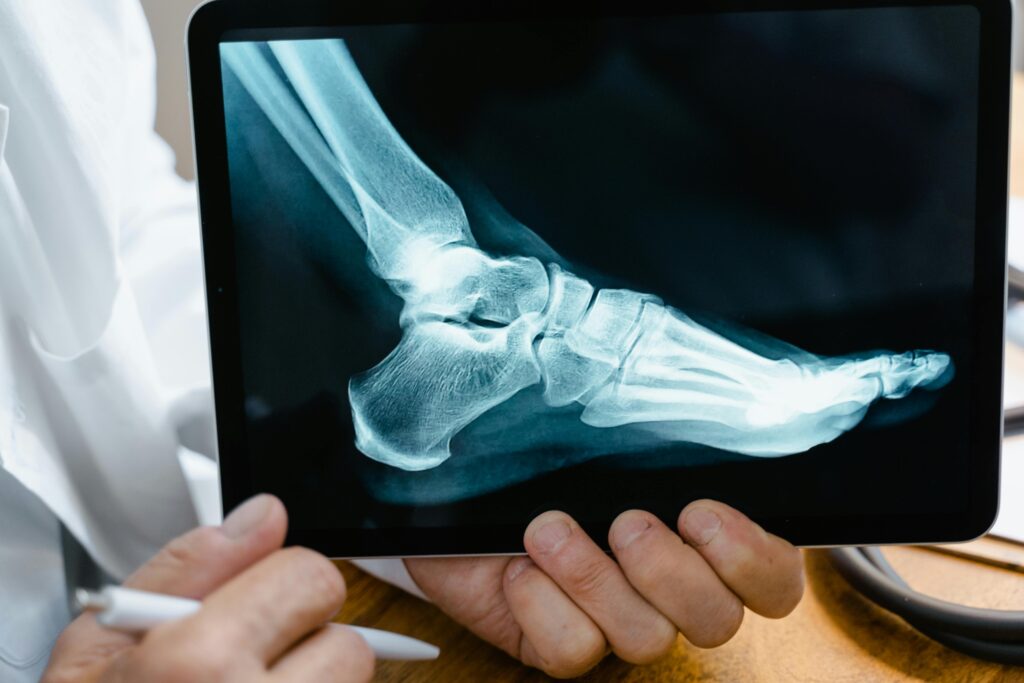Colorado’s Premier Legal Team for 18-Wheeler Crash Victims
The roads, highways, and mountain passes of Colorado are filled with commercial 18-wheelers hauling freight through every season. While these massive trucks play a vital role in Colorado’s economy, they also pose an immense risk. A single collision with an 18-wheeler on I-70 or I-25 can change a person’s life in seconds. These vehicles weigh tens of thousands of pounds and cannot stop quickly, especially in snowy, mountainous, or high-traffic areas. Unlike smaller vehicles, even minor contact with a commercial truck can result in devastating physical injuries and total vehicular destruction.
The Colorado Department of Transportation (CDOT) has repeatedly warned about the danger of high-speed crashes involving commercial trucks, especially in mountainous terrain. From the infamous “Gap” project south of Castle Rock to the steep inclines outside Vail, drivers face unique risks daily. The problem becomes more severe when trucking companies ignore safety protocols. Common issues like driver fatigue, equipment failure, and overloaded trailers lead to deadly wrecks every year. Survivors of these horrific crashes often face traumatic brain injuries, spinal damage, and months of painful rehabilitation.
Jordan Levine and his team understand the urgency and complexity of 18-wheeler accident cases in Colorado. Our firm fights back against trucking corporations and their insurers building every case with precision and urgency. Victims need attorneys who act fast, preserve evidence, and force accountability under federal and Colorado law. Learn how Colorado’s terrain and traffic volume shape accident risks by visiting the CDOT Freight Plan.
What You Need to Know About the Types of 18-Wheeler Crashes in Colorado
18-wheeler accidents across Colorado vary significantly in type, cause, and legal complexity. Whether on urban expressways or rural highways, these massive vehicles pose unique hazards to other drivers. Understanding the differences in crash types helps victims recognize liability issues and build stronger claims. From jackknife wrecks in the high country to cargo spills along I-25, every 18-wheeler accident brings its own set of dangers. Each requires fast legal action, scene preservation, and deep knowledge of both federal trucking laws and Colorado’s unique terrain and traffic flow.
Jackknife Collisions on Mountain Roads
Jackknife accidents in Colorado often occur during downhill descents or during emergency braking along slick roads. When a trailer swings out perpendicular to the cab, it creates a sweeping hazard that can span multiple lanes. These crashes happen frequently on steep grades like Vail Pass and Loveland Pass, especially during snowy conditions. Factors like weight imbalance, poor braking practices, and icy asphalt cause these devastating collisions. Victims are usually caught off-guard, with little to no time to maneuver away from the sliding trailer, leading to catastrophic consequences.
Rollover Wrecks on Colorado’s Freeways
Rollover accidents involving 18-wheelers often result in multi-lane closures and severe injuries to nearby drivers. In Colorado, rollover incidents are common along elevated roadways and winding interstates where speed control is difficult. Trucks carrying top-heavy loads through curves or high-wind areas like eastern I-76 face increased risk. When the truck tips, everything in its path, including other vehicles, gets flattened or crushed. Strong winds, distracted driving, and overcompensated steering contribute to these rollovers, especially in the wide open spaces outside Denver and Pueblo.
Rear-End Truck Accidents in Dense Traffic
Rear-end collisions with 18-wheelers usually happen in heavy traffic zones where sudden stops are frequent. Trucks require longer stopping distances due to their weight, and when drivers fail to account for this, crashes happen. This is particularly problematic along I-25, I-70, and during ski season congestion near resort towns. Victims often suffer severe spinal injuries, whiplash, and vehicle destruction. Truckers traveling too close or failing to monitor speed and distance cause these preventable wrecks, which often involve multiple vehicles and insurance complications.
Underride Crashes in Poor Visibility
Underride crashes are among the most lethal 18-wheeler accidents in Colorado, especially during nighttime or winter conditions. These accidents happen when a smaller car slides under a truck’s trailer, often due to the truck’s lack of reflective tape, malfunctioning tail lights, or sudden stops without guards. On poorly lit rural roads or during snowstorms, visibility can drop dangerously low. Drivers following too closely or misjudging a truck’s stopping ability may become pinned beneath, resulting in fatalities or permanent disability.
Wide Turn Side-Impact Collisions
Trucks making wide turns often require two lanes or more to complete their maneuver, especially in city centers or older intersections. In places like downtown Colorado Springs or Grand Junction, tight roads and blind spots create the perfect conditions for side-impact crashes. These incidents happen when truckers misjudge turning space or fail to check for cars, cyclists, or pedestrians before swinging wide. The result can be a crushing blow to the side of a smaller vehicle caught between the trailer and curb.
Tire Blowouts in High Heat or Altitude
Tire blowouts cause immediate danger, especially on mountain passes or during high-speed travel along Colorado’s interstates. Summer heat, elevation-induced stress, and steep descents accelerate tire wear and raise the risk of failure. When a truck tire explodes, large rubber fragments scatter across the road while the driver may lose control of the vehicle. Blowouts frequently cause jackknifes, rollovers, or multi-vehicle crashes, especially in heavy freight zones near cities like Greeley or Commerce City. Poor maintenance, overinflation, or underinflation are usually to blame.
Blind Spot Impacts and No-Zone Wrecks
Blind spot or “no-zone” accidents are common because truck drivers cannot see vehicles in specific areas around their rig. In Colorado’s busy traffic corridors, cars that linger beside or behind an 18-wheeler risk being crushed or sideswiped when the truck changes lanes. These accidents often occur in fast-paced conditions on I-25 or I-270, where trucks maneuver through dense lanes. When drivers fail to check mirrors or rush lane changes, smaller cars in blind zones can suffer serious impacts without warning or time to escape.
Cargo Spills and Lost Load Incidents
Unsecured or improperly loaded cargo is a serious hazard across Colorado’s trucking routes. These accidents occur when freight falls off flatbeds or spills from enclosed trailers, often during sharp turns, rapid acceleration, or sudden braking. On roads like Highway 50 or I-76, spilled cargo creates instant roadblocks and forces vehicles to swerve or crash. Load spills are usually caused by neglected inspections, broken restraints, or loads that exceed legal weight limits. These events frequently lead to chain-reaction accidents and require specialized cleanup crews.
Common Injuries in Colorado 18-Wheeler Accidents
Collisions involving 18-wheelers often leave victims with catastrophic injuries that change lives instantly. These injuries are not like those in typical car accidents because of the massive size and force of commercial trucks. Victims often require emergency medical intervention, long-term rehabilitation, and permanent lifestyle adjustments. The most common injuries in Colorado truck accidents include traumatic brain injuries, spinal cord damage, broken bones, internal bleeding, and psychological trauma. Each of these conditions demands immediate legal attention to secure proper compensation for treatment, lost income, and long-term care needs.
Traumatic Brain Injuries (TBI)
Victims of 18-wheeler accidents frequently suffer traumatic brain injuries when their heads strike windows, dashboards, or airborne debris. These injuries range from mild concussions to severe brain damage resulting in coma or cognitive disability. In Colorado, many of these incidents occur on highways where speeds amplify impact force. TBIs require costly diagnostic imaging, hospitalization, and neurologic care. Victims may experience memory loss, speech problems, or emotional instability. Fast diagnosis, medical documentation, and a truck accident attorney like Jordan Levine are critical to secure full compensation.
Spinal Cord Injuries and Paralysis
Truck accidents often result in damage to the spinal cord, which can cause temporary or permanent paralysis. Injuries to the cervical or thoracic spine may leave victims unable to walk, control limbs, or perform daily tasks. Spinal damage is common in rollover or underride crashes where crushing force impacts the back or neck. Victims in Colorado may need spinal fusion surgery, mobility aids, and home modification for long-term care. The economic and emotional toll of paralysis requires aggressive legal advocacy to recover maximum compensation.
Bone Fractures and Orthopedic Trauma
Broken bones are one of the most frequently reported injuries after a semi-truck collision in Colorado. Victims often suffer compound fractures, crushed limbs, or shattered joints due to the impact. These injuries require emergency surgery, pins, plates, and months of physical therapy. Drivers and passengers struck by 18-wheelers commonly break ribs, pelvises, arms, or legs sometimes simultaneously. Without fast surgery and structured rehabilitation, these injuries can lead to lasting disability. Documentation and treatment records are essential for proving long-term losses in court.
Internal Organ Damage and Bleeding
The blunt force trauma in a truck crash can rupture internal organs or cause severe internal bleeding. Damage to the liver, spleen, kidneys, or lungs may not be visible immediately after the crash. Many victims collapse later from hemorrhage, shock, or organ failure. These life-threatening injuries demand emergency surgical care and can result in lifelong medical needs. Colorado emergency rooms frequently see internal injuries from highway truck crashes, especially when smaller vehicles are crushed. A fast legal investigation preserves evidence and connects damages to the crash.
Psychological Injuries and PTSD
Survivors of 18-wheeler collisions in Colorado often experience deep psychological trauma that continues long after physical wounds heal. Many victims report flashbacks, insomnia, anxiety, and depression related to the crash. These symptoms are consistent with post-traumatic stress disorder (PTSD) and may require years of therapy. Children, first responders, and those who lost loved ones often suffer the most. Jordan Levine understands that emotional injuries carry real legal weight. These non-economic damages are recoverable through strategic litigation supported by mental health experts.
Leading Causes of 18-Wheeler Wrecks on Colorado Roads and Interstates
Truck accidents in Colorado often share the same dangerous root causes. From mountain corridors to urban sprawl, several recurring behaviors and system failures contribute to deadly 18-wheeler wrecks. The combination of tight delivery schedules, adverse weather, steep grades, and driver fatigue creates unsafe conditions. Many crashes result from entirely preventable mistakes made by drivers or carriers who violate state and federal safety regulations. Below are four of the most common causes behind these devastating collisions across Colorado highways.
Distracted Driving Behind the Wheel of an 18-Wheeler
Distraction is a leading cause of large truck crashes throughout Colorado, particularly in urban corridors and congested routes like I-25. Truckers may check GPS, use smartphones, or reach for items inside the cab while moving at highway speeds. These brief moments of distraction can have devastating consequences. Unlike passenger cars, 18-wheelers take much longer to stop and react. A delayed response in traffic can result in jackknifes, rear-end crashes, or lane-departure accidents. Jordan Levine holds drivers accountable for distracted behaviors that violate FMCSA standards and Colorado law.
Overworked Drivers Pushed to Dangerous Limits
Many trucking companies in Colorado pressure drivers to meet unreasonable delivery deadlines, causing fatigue and burnout. Overworked truckers often skip federally mandated rest breaks and exceed hours-of-service rules. Tired drivers make slower decisions, miss hazards, and may fall asleep at the wheel. This problem becomes worse in winter when extended delays push drivers past legal shift limits. Jordan Levine investigates driver logs, ELD records, and dispatch communications to uncover illegal scheduling practices that increase the likelihood of sleep-deprived crashes across the state.
Poor Truck Maintenance and Equipment Failure
Failing to maintain brakes, tires, and safety systems often leads to tragic accidents on Colorado highways. With steep terrain, sharp curves, and unpredictable weather, every component must function properly. Common maintenance failures include worn brake pads, underinflated tires, broken lights, and faulty turn signals. Trucks climbing or descending mountain passes without functioning systems are ticking time bombs. Jordan Levine’s team examines maintenance records, inspection logs, and mechanic reports to prove that equipment failures contributed directly to crash-related injuries and damages.
Improper Cargo Loading and Weight Violations
Improperly loaded cargo creates a major hazard, especially when trucks travel through Colorado’s high-altitude routes and steep grades. Overloaded trailers increase the risk of brake failure, tire blowouts, and rollovers. Shifting loads can also destabilize trailers during turns or stops. Colorado enforces strict weight limits and cargo regulations that many companies ignore. Jordan Levine investigates weigh station reports, manifest records, and load distribution to prove when companies violated loading standards and created unsafe conditions that led to serious injury or death.
How Jordan Levine Proves Liability After a Colorado 18-Wheeler Collision
Trucking companies and insurers act fast to limit financial liability after a crash, often before victims leave the hospital. Proving fault in a Colorado 18-wheeler accident case takes more than a police report. It requires technical investigation, legal precision, and fast action to preserve digital evidence. Jordan Levine uses every available tool, from black box data to federal violation audits, to prove how negligence caused catastrophic injuries. Below are key methods our team uses to establish liability and recover maximum compensation for Colorado crash victims.
Violations of Federal Trucking Safety Regulations
The Federal Motor Carrier Safety Administration (FMCSA) governs truck driver hours, vehicle inspections, and operational safety. Violations of these regulations are strong evidence of negligence in a Colorado injury case. Jordan Levine investigates hours-of-service logs, maintenance reports, and DOT audits to uncover rule-breaking behavior. We cross-reference crash details with FMCSA records to show how ignored standards contributed directly to the crash. By proving federal safety violations, we build a case that shows the trucker or their employer broke clear legal duties.
Multiple Layers of Trucking Insurance Coverage
Most commercial carriers operate under layered insurance policies, including liability, umbrella, and cargo-specific coverage. In Colorado cases, identifying all responsible insurers is key to recovering full damages. Jordan Levine uncovers overlapping coverage held by the truck driver, their employer, and any third-party logistics contractors. We examine insurance contracts, certificate disclosures, and state compliance filings to expose hidden policies. Our team files claims strategically to maximize available compensation and challenge bad faith tactics used to delay or deny recovery.
Black Box Data and Electronic Logging Devices (ELDs)
Modern 18-wheelers use event data recorders, also called “black boxes”, to track speed, brake use, gear shifts, and more. These devices capture vital information in the moments before a crash. Jordan Levine moves quickly to preserve this data before it gets deleted or overwritten. Our forensic team analyzes black box outputs, ELD logs, and GPS systems to reconstruct exactly what happened. This technology helps us prove excessive speed, brake failures, and illegal driving hours that led to preventable Colorado crashes.
Negligent Hiring, Training, and Supervision by Trucking Companies
Colorado law allows victims to sue trucking companies directly when poor hiring or inadequate training contributed to a crash. Jordan Levine reviews personnel records, background checks, and training certifications to find red flags. We investigate whether the driver had a history of accidents, DUIs, or expired credentials. If companies placed dangerous drivers behind the wheel or failed to supervise them properly, we build a direct liability claim. These cases often involve repeat offenders and systemic safety violations that companies ignore to cut costs.
Compensation for Colorado 18-Wheeler Accident Victims and Their Families
Collisions with commercial trucks leave Colorado victims with financial devastation, physical pain, and emotional trauma. Because 18-wheeler crashes often involve catastrophic injuries, victims require compensation far beyond that of ordinary car accident claims. Recovery includes medical bills, long-term care, loss of income, and pain and suffering. Jordan Levine and his legal team work with medical experts, economic analysts, and life care planners to prove the full scope of damages. Below are the key categories of compensation available to 18-wheeler accident victims in Colorado.
Medical Costs for Emergency Care and Long-Term Recovery
Truck accidents in Colorado usually result in high medical expenses, from ambulance transport to multiple surgeries and rehab. Jordan Levine ensures that victims recover the full cost of past and future medical treatment. This includes hospital stays, diagnostics, surgeries, therapy, medications, and durable medical equipment. In serious cases, clients may require in-home nursing care or mobility modifications. Our firm documents every cost using expert testimony, billing records, and medical reports to demand full reimbursement from responsible parties.
Lost Wages and Diminished Future Earnings
Injuries from 18-wheeler crashes often prevent victims from working temporarily, or permanently. Compensation includes paychecks lost during recovery and income the victim can no longer earn. Colorado workers in industries like construction, transportation, and health care often lose access to physically demanding jobs after serious injuries. Jordan Levine works with vocational experts and economists to project future income losses. We also consider lost bonuses, career changes, and missed business opportunities when calculating long-term earning capacity damages.
Pain, Suffering, and Emotional Distress
Beyond physical injuries, 18-wheeler crashes cause deep emotional trauma that deserves full legal recognition. Victims suffer from PTSD, anxiety, depression, and reduced enjoyment of life. These non-economic damages are often greater than financial losses and should never be underestimated. Jordan Levine interviews therapists, counselors, and family members to document psychological harm. In severe injury cases, clients may face social isolation, chronic pain, and loss of independence, all of which contribute to pain and suffering compensation claims.
Property Damage and Vehicle Replacement
When an 18-wheeler crashes into a passenger car, the smaller vehicle is often totaled. Property damage compensation covers vehicle repair or replacement costs, as well as damaged items inside. Jordan Levine documents every loss, including transportation costs like rental vehicles, towing fees, and storage expenses. For clients who depend on their vehicles for work or family obligations, these losses can be particularly disruptive. We ensure full reimbursement for both the car and personal property destroyed during the crash.
Legal Help When You Need It Most
An 18-wheeler crash is not just a traffic accident, it is a life-altering event with lasting physical, emotional, and financial consequences. Colorado victims face steep medical bills, long-term recovery timelines, and aggressive insurance companies who rush to minimize payouts. You need legal representation that acts immediately, knows Colorado’s transportation laws, and will not back down from large commercial carriers. Jordan Levine is committed to protecting accident victims across Colorado, from the Eastern Plains to the Rocky Mountains, by building aggressive cases backed by evidence, expert testimony, and unmatched legal strategy. When you hire our firm, we launch an investigation the same day and preserve every piece of critical evidence. We work closely with your medical providers and ensure your case reflects the full scope of your losses. You do not pay unless we win, and we do not stop until justice is served.
Talk to someone who understands Colorado 18-wheeler crashes.
Schedule your free consultation with Jordan Levine today → Contact Us
Practice Areas
Trust Levine LawWith Your Personal Injury Claim
If you or a loved one have been injured, Levine Law will fight for you every step of the way. We will give our all to secure the compensation you rightfully deserve.
Contact usfor a free consultation.
Phone: (303) 951-4810
